 This land does not belong to us. It is not ours.
This land does not belong to us. It is not ours.
We don’t know the stories here.
Our ignorant bliss offends and desecrates.
We reveal ourselves an enemy to life.
This poster has proven challenging and upsetting for some readers. It’s a hard understanding that asks us to stop and consider how blindly we walk on stolen land that is not ours.
Especially for those who consider themselves to be conscious, socially progressive, radical, or a good person, this understanding really strikes at the heart of behaviors that may bring joy to some, but continues to traumatize and infuriate Indigenous people of Turtle Island.
One thing that is difficult about this poster is its truth. I’ve witnessed the exact scene depicted in this image. The only physical thing missing was the stone with symbol carvings. In one instance I am aware of – this very scene occurred in a burial ground used for thousands of years.
The normalization of these behaviors without accountability creates an “anything goes” environment that perpetuates the silencing of Indigenous objection and worse can create division within communities between Indigenous folks willing to tolerate or capitalize on white settler behaviors, and those who may have deeper spiritual understanding of the importance to resist them.
The very simple fact is, we are newcomers to lands that have been lived and loved on for many thousands of years and since creation itself. Our footsteps are not the first. Even in the deepest forest. We are not the first.
Our gaze is not alone. The beauty we see has been seen many times before us, with eyes of a person much more connected to this place than we can even hope to be. And when our gaze reaches out over the expanse, it is joined by ancestors and unseen beings we have no clue about.
I am ever mindful of being a guest when I walk in someone’s territory. I always try to get permission or guidance about walking on someone’s land.
I am further reminded of my visitor status when I say to someone in that nation, “I was walking ___.”
And they reply, “Oh yea, ___ lived up there back in the late 1800s” or, “We have a story about that place…”
When we venture into the forest, onto the beach, out in the desert, or up into the mountains, we must never forget that our relationship and understanding of these places is very young, and very, very limited. Our behaviors have consequences. And our hungry quest for joy or connection can lead to disrespectful decisions and actions even if our intentions are well meaning.
Few of us can even speak our own Indigenous languages, much less the ones that are born from the land here. How can we believe to know what this land wants, or what is best for it, when we cannot even speak its sacred tongues?
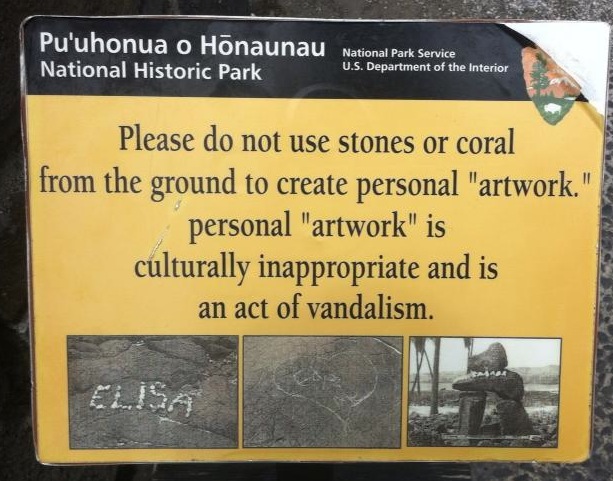 Even our “artwork” and our striving for some kind of joyful relationship can offend both the land and the Indigenous peoples who survive. Only through our white and settler privileges can we ignore or disregard these feelings and protocols and continue to stamp our face onto someone else’s body.
Even our “artwork” and our striving for some kind of joyful relationship can offend both the land and the Indigenous peoples who survive. Only through our white and settler privileges can we ignore or disregard these feelings and protocols and continue to stamp our face onto someone else’s body.
Our inability to respect the Indigenous lands we occupy and her peoples is born out of disconnection from our own ancestral places. Until we can reconnect to the land that lives inside of our spiritual and physical bodies, then we will continue to act like spoiled children in a land of elders.
Our lands yearn for our return. Strive for return with all your heart and resourcefulness. And when you return, get to know your elders there – from the smallest bug to the mightiest mountain. And in that knowing, wholeness and balance will begin to renew itself. Return.
Get the latest updates and resources...
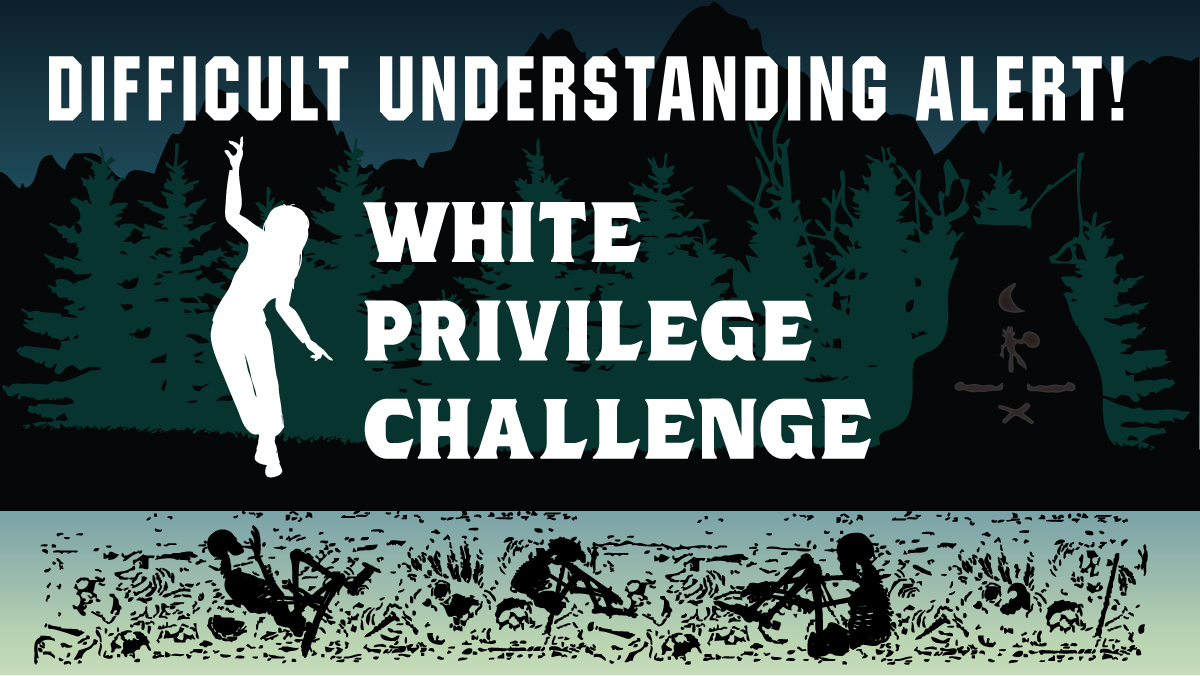
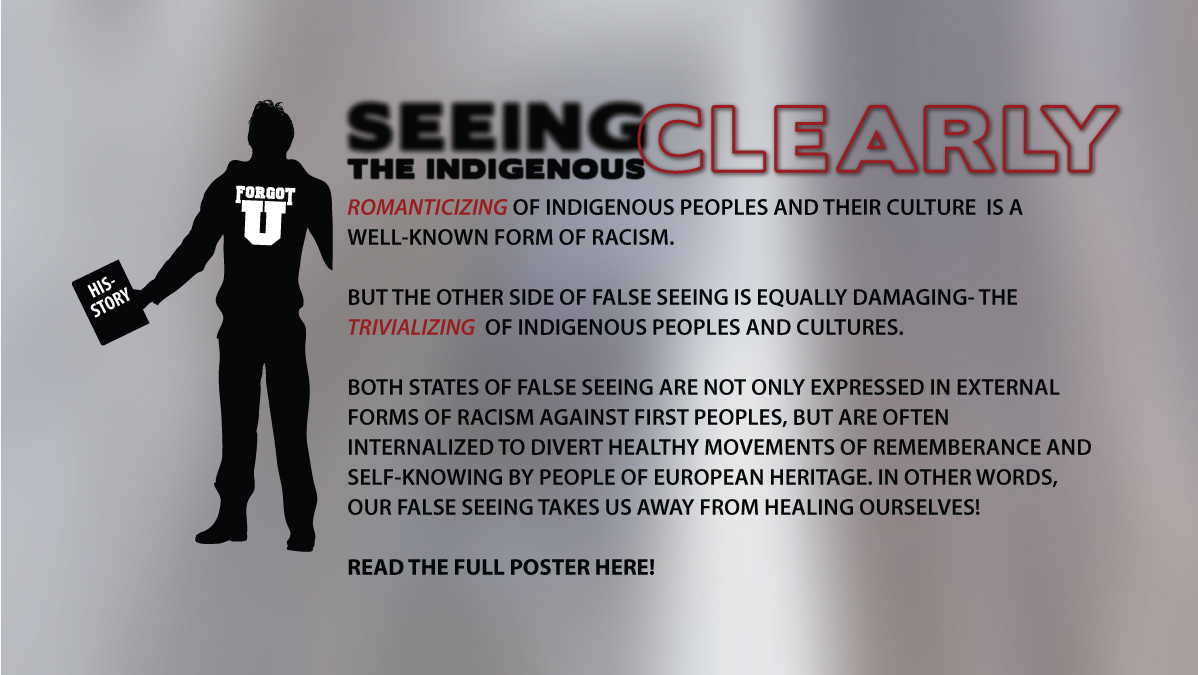
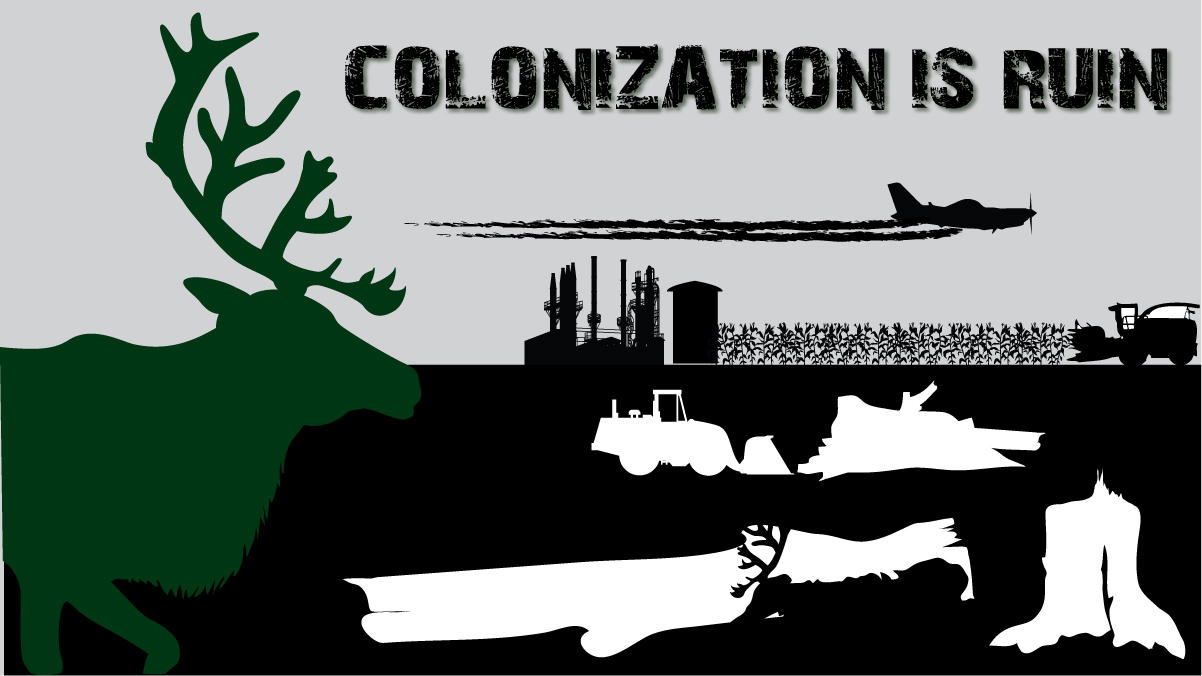
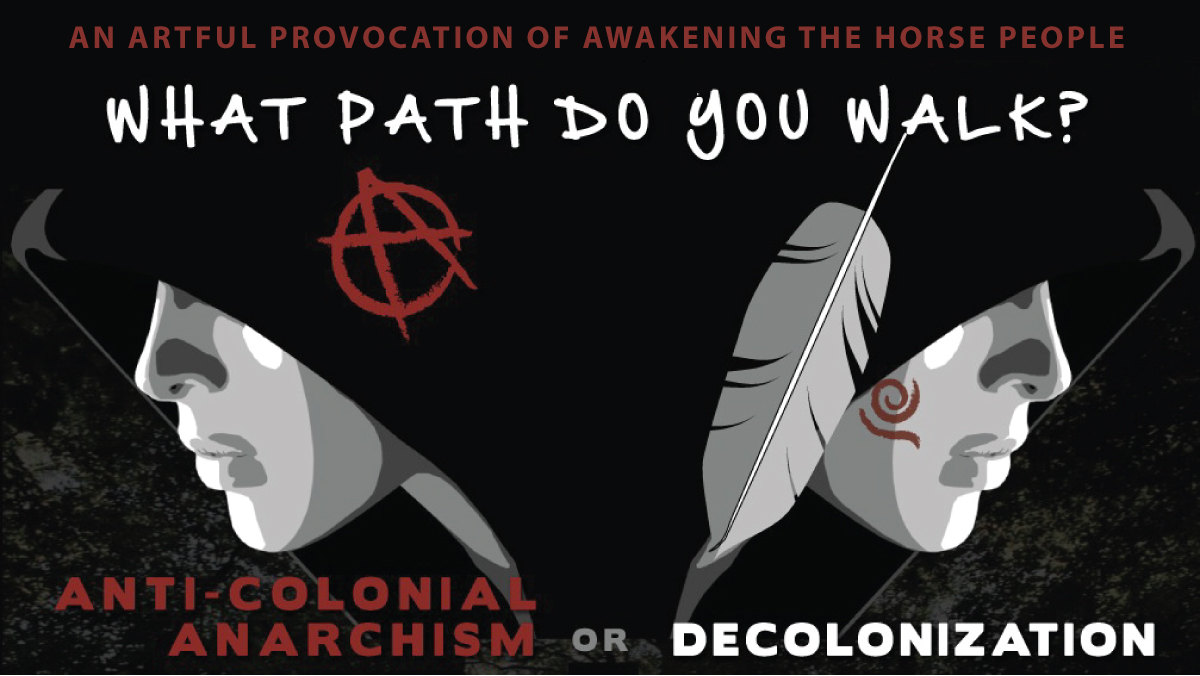
1 thought on “We Don’t Know the Stories Here”